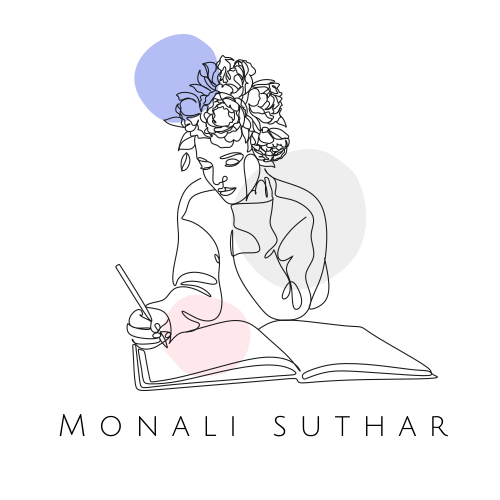The Crossroads of Culture: Are We Ready for the Hidden Costs of Westernization?
- Home
- The Crossroads of Culture: Are We Ready for the Hidden Costs of Westernization?
The global spread of Western ideals—transparency, individualism, and the pursuit of wealth and fame—has reshaped societies worldwide. Yet, as nations adopt these values, critical questions arise: Are we prepared to confront the unintended consequences that accompany them? Issues like fractured family bonds, mental health crises, loneliness, and the erosion of authentic human connection plague Western societies. For cultures rooted in collectivism, familial love, and community interdependence, the trade-offs demand urgent scrutiny. In this article we will examine whether the world is truly ready to sacrifice its cultural foundations for the promises of modernity.
The Allure of Westernization: Progress or Peril?
Western cultural exports, from Hollywood to Silicon Valley, promote ideals of transparency, meritocracy, and self-reliance. Economies thrive on competition, social media glorifies individualism, and success is measured by material wealth. Countries like India, Japan, and Nigeria increasingly emulate these models, chasing economic growth and global relevance.
Statistics:
- 72% of young adults in developing nations equate “success” with financial independence as per the Pew Research, 2023.
- Social media adoption in Asia and Africa has surged by 300% since 2015, mirroring Western communication patterns as per the Statista, 2023.
Reference:
“The Myth of Meritocracy: How Hyper-Individualism Fails Us” (The Global Review) argues that Western transparency often masks systemic inequities, leaving marginalized groups behind.
The Hidden Costs of Abandoning Tradition
- Family Values Under Siege
Western nuclear family structures contrast sharply with extended family systems in cultures like India, where multigenerational households provide emotional and financial safety nets. As urbanization and career-centric lifestyles spread, these bonds fray.
- Data Point: Divorce rates in urban India have risen by 40% in a decade, correlating with Western workplace norms as per the UN Population Division, 2022.
- Expert Quote: Dr. Anika Rao, sociologist, warns, “We’re importing individualism without the infrastructure to handle its isolation.”
- Mental Health and Psychological Pressure
The WHO reports a 25% global increase in anxiety and depression since 2020, with youth in Westernized urban centers most affected. The pressure to “succeed” monetarily exacerbates this crisis.
- Case Study: South Korea’s “Hell Joseon” phenomenon—youth suicide rates linked to academic and career stress—reflects the dark side of competitive individualism mentioned on Korea Herald, 2023.
- “Burnout Culture: When Hustle Becomes Harmful” ties productivity obsession to declining mental health – Ref Mind Matters Blog
- Loneliness and the Crisis of Connection
Paradoxically, hyper-connected societies report unprecedented loneliness. The U.S. Surgeon General declared loneliness a public health epidemic in 2023, with 58% of Americans feeling socially isolated.
- Global Trend: Japan’s “hikikomori” (social recluses) and Sweden’s 40% single-person households reveal the toll of eroded community ties.
- Statistic: 64% of Gen Z respondents globally admit to feeling “chronically lonely” despite online connectivity. – ref McKinsey Health Institute, 2023.
Cultural Roots vs. Modernity: Can We Bridge the Divide?
Traditional cultures emphasize interdependence, but globalization often frames these values as “backward.” Yet, evidence suggests a hunger for balance:
- Hybrid Models: Ghana’s “ubuntu” philosophy “I am because we are” is being revitalized in corporate ethics training to counter cutthroat capitalism.
- Data Insight: 68% of millennials in Brazil and Indonesia prioritize “family time” over career advancement – Gallup, 2023.
Expert Perspective:
Psychologist Dr. Elena Martínez notes, “The human psyche craves belonging. We cannot monetize our way out of primal needs for love and care.”
Are We Ready?
The answer is nuanced. While economic progress is vital, societies must proactively safeguard cultural pillars that nurture mental resilience and connection. This requires:
Final Quote:
“A tree without roots cannot bear fruit. Let’s modernize but not amputate our souls.” —Ravi Shankar, cultural anthropologist.
Resources:
- [Blog] “The Loneliness Economy: How Capitalism Profits From Isolation” (The Humanist Journal)
- [Report] WHO’s 2023 Global Mental Health Assessment
- [Podcast] “Reclaiming Community in a Digital Age” (BBC World Service)
Final Thought:
As the world races toward modernity, the stakes are existential. Wealth and fame mean little if we lose the love, care, and connections that make us human. The choice isn’t between tradition and progress—it’s about weaving them into a tapestry that honors both.
Monali Suthar,
+91 90993 42227
